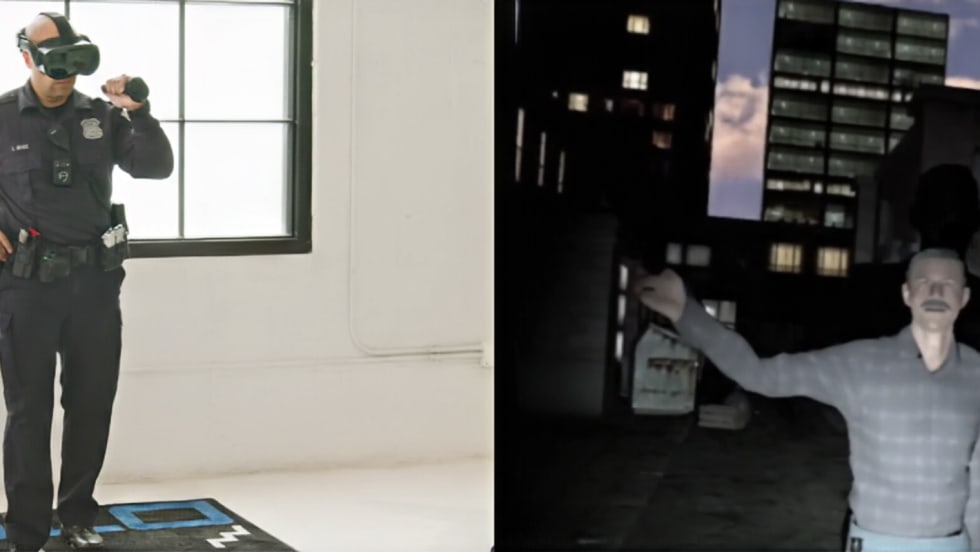Recently I was talking to veteran crimefighters in Mattoon, Illinois, and a couple of them mentioned they had attended my classes back in the 1980s. This brought back some memories. In those days discussing advancements in sports and performance psychology was still something some found questionable.
I remember, about that time, talking with Chuck Remsburg of Calibre Press fame about guided visualization, autogenic breathing, and relaxation techniques. We were working on what would become NTOA’s The Tactical Edge, and Chuck was concerned that it all sounded too “granola.”
So, we rebranded visualization as “crisis rehearsal,” autogenic breathing as “tactical breathing,” relaxation techniques as “progressive relaxation” and so on, and these terms became part of law enforcement vernacular.
As science developed a better and better understanding of human performance, law enforcement continued to learn and adapt as well. I just mentioned three things we can use from the science of human performance that, I truly believe, will protect most officers against PTSD, but there are a lot more available.
For instance you can download a breathing app (that’s right, a breathing app) and start doing the exercises. Or simply ask your favorite AI to explain “sports psychology and police training” and apply the concepts and tools it mentions. Making yourself shatterproof is key to thriving after a critical incident and there are a lot of resources available now to help you do just that.
Decades ago, Dr. Sally Satel learned that preparing for these incidents could be an inoculation against PTSD. Crisis rehearsal is a wonder tool to preload you for success and prevent the after effects of traumatic stress. Critical components of this, according to the good Doctor, include having faith in our cause and our mission to protect, deriving meaning from the crisis, and having strong supportive friends. These are the best predictors of winning not just the fight, but the aftermath. We don’t want to just get home, we want to keep the home.
All this is to say, we have come a long way, baby, and we need to keep learning. If you are a trainer or want to become one, you need to see yourself as a high-performance coach preparing your athletes for the greatest contest of their lives, the details of which neither of you can know in advance. The key is this: You must give your charges the mental and physical knowledge, skills, and mindset to deal, overcome, and thrive when the unthinkable happens.
From gunfights, to fistfights, to crashes, to horrible crime scenes, a crime fighter needs to be preloaded, not only to win, but to quickly heal or get help if necessary. Every athlete knows to go to the trainer to wrap a sprain, and modern sports elites often see a sport psychologist to deal with a loss, an injury, or just plain old stress. Crime fighters must do the same.
Just as the science of motor learning has given us keen insight into how to structure training skills, applied sports psychology is an essential tool in our box as we prepare our cadets for the street.
But what about after the academy? Too often, the officer, deputy, trooper or agent, gets little reinforcement after graduation. True, some assignments like SWAT, narcotics, or motors, provide additional training, but a refresh on the core elements of resilience and recovery are typically only available if an individual is suffering a crisis, one that was potentially preventable.
Suicides, medical retirements and other tragedies are often treated as sad but inevitable events when perhaps we might have inoculated the sufferer with more training or support. We seem to be getting better and better at treating suffering, but the next step is preventing someone from having that pain in the first place!
Peer support, mental training such as crisis rehearsal and meditation, along with Tactical Breathing and progressive relaxation techniques should be part of in-service training, not just the academy. It’s time to get back to training our heroes for the heroic act, for the ultimate contest, for the horrors they may have to deal with, because that is the crime fighter’s job and no one else is coming. The tragedies they may witness are beyond what any civilian other than an ER doctor or nurse can understand.
Police trainers should be familiar with Performance Psychology and Motor Learning studies, and layman-level books for coaches and trainers abound to provide this information. If you need help understanding a concept, just ask your favorite AI about it. I am not kidding, as I said earlier, just ask about police training and sports psychology.
To sum up, a recent study of Olympic athletes found over 90% used mental rehearsal and 100% of the coaches believed in it, and those folks are only fighting for a gold medal. You are fighting for your life.
Dave Smith is an internationally recognized law enforcement trainer and is the creator of “JD Buck Savage.” You can follow Buck on Twitter at @thebucksavage










